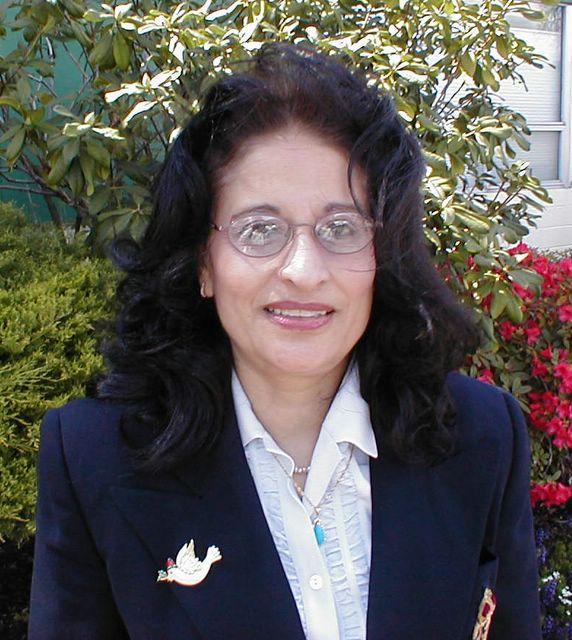Faculty sue trustees over shared governance 06/28/2015
http://uomatters.com/2015/06/faculty-sue-trustees-over-shared-governance.html?utm_source=twitterfeed&utm_medium=twitter
https://www.insidehighered.com/news/2015/06/26/monks-sue-trustees-more-authority-benedictine-university
https://www.insidehighered.com/news/2015/06/26/monks-sue-trustees-more-authority-benedictine-university
Monks Seek Shared Governance
June 26, 2015
Monks are suing trustees at Benedictine University in Illinois for shutting their religious order, which founded the institution 128 years ago, out of major decisions.
The monks want power to approve the institution’s next president and say the Board of Trustees has been unwilling to disclose possible conflicts of interest, despite repeated requests by the monks to do so and, according to a lawsuit filed earlier this week, mandates in Benedictine’s bylaws that require disclosure.
Benedictine is a Roman Catholic university that enrolls around 6,500 students and is 30 miles outside Chicago.
Father Austin Murphy, the abbot of St. Procopius Abbey, which is part of the order that founded Benedictine in 1887, says a group of seven members, comprised of Benedictine monks from the Abbey, is given leadership powers in the university’s bylaws that are being denied by the university and its trustees.
One of those powers, they contend, is to approve the president of the university. When longtime president William Carroll was elected in 1995, Abbot Murphy says, members approved the selection. Yet in the search for Carroll’s successor, members were denied a chance to meet finalists, despite repeated requests. They were also not consulted when trustees selected Michael Brophy to succeed Carroll, effective in August.
Abbot Murphy says he does not have a problem with Brophy, who was most recently president of Marymount California University, but is instead unhappy with the selection process. He also said he doesn't have a specific concern about conflicts of interest, but has been told by Carroll that conflicts of interest don't need to be disclosed by trustees. Yet Abbot Murphy says the bylaws state differently and he has requested disclosure, but has been denied.
“We’re meant to be participants in the affairs of the university,” Abbot Murphy said. “We obviously can’t oversee and govern a university on our own, so we’re looking to collaborate.”
Shifting Identity?
Tensions at Benedictine are indicative of the tensions that sometimes occur as the relationship changes between colleges and the religious groups that founded them. Generally, clergy are less likely to lead Catholic colleges or to dominate boards than was the case a few generations ago. Forty years ago, for example, Benedictine elected its first lay president. The vast majority of its Board of Trustees are laypeople, and many are prominent players in the Chicago business scene.
“The contributions of the founding orders continue to guide and add distinctive value” to Catholic institutions, Michael Galligan-Stierle, president of the Association of Catholic Colleges and Universities, said in a statement. “With the decline in people entering religious life, laypeople have taken on roles that were once held only by sisters, brothers and priests, including leadership, faculty and staff.”
As modern religious institutions depend less on their founders for monetary and other support -- St. Procopius Abbey offers donations to the university, but they are not an annual or fixed source of income -- there’s a question about how involved religious orders should be in the institutions they founded.
“There is out there an idea that the religious order has played their part and now they have to hand it over to nonreligious lay persons,” Abbot Murphy said.
Yet while the abbey’s relationship with the university has evolved over time, Abbot Murphy says Benedictine’s core religious identity and spiritual values remain the same.
“We believe we have something to offer in that regard,” he said.
By refusing to let the monks participate in the president’s selection, trustees are making a “strong statement” about limiting the involvement of the order in the university's affairs.
“It gets to the very nature and identity of the school. It’s a Benedictine school,” Abbot Murphy said. “To go in another direction is changing it in a dramatic way, and that is really an issue about our core identity.”
While not referencing Benedictine specifically, Galligan-Stierle said lay trustees at Catholic institutions are committed to the traditions and missions of founding orders.
“Even while leading our institutions through contemporary changes, the drive to remain faithful to the founders’ ideals is strong,” he said.
Difference in Interpretation
Benedictine administrators and the chair of the Board of Trustees declined to be interviewed for the article, but in a statement said that the university is a “family and not immune to disagreement” and asserted that trustees interpret the bylaws differently.
“The abbot, like the president of the university, is an ex officio member of the Board of Trustees, meaning both have full voting rights on all matters,” the statement says.
“The university’s interpretation of this is the abbot, and his vote, represents the abbey and its members on all matters put before the university’s board. The monks’ governance per their reserve powers outlined in the bylaws pertains to sale of property, closure of the university, election of new trustees and debts that produce liens on university property.”
The university asserts that monks have been involved in all changes to the bylaws over the years.
“The only change in recent years has been that of leadership within St. Procopius Abbey and a different interpretation of the bylaws by that leadership,” the statement reads.
Neither Abbot Murphy nor the university would provide Inside Higher Ed a copy of the bylaws for this article.
Abbot Murphy is hoping that the lawsuit, filed in DuPage County Circuit Court, will provide a binding interpretation of the bylaws in favor of the abbey.
He says tensions began a few years ago when “large decisions were being made” and monks felt like they should be consulted more.
“We’re at an impasse. We’ve tried to work it out for the past few years -- we don’t feel like it’s going anywhere,” he said.


<< Home